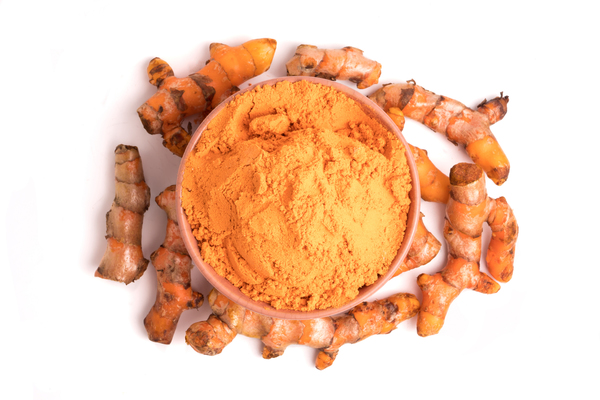Gingerols

Gingerols are the pungent ingredients of ginger, a well-known medicinal plant. They have various positive effects on dogs' health, but also pose some risks. In this article you will learn more about gingerols and how to use them correctly.
What are gingerols?
Gingerols are essential oils contained in the ginger root. They belong to the so-called pungent substances that are responsible for the typical taste and smell of ginger. There are different types of gingerols, which differ in their chemical structure and pungency.
How do gingerols work in dogs?
Gingerols have a number of positive effects on the health of dogs. For example, they can
- promote blood circulation and thus improve the oxygen supply to the cells
- stimulate digestion and relieve nausea, vomiting and flatulence
- strengthen the immune system and inhibit inflammation
- reduce sensitivity to pain and thus help with osteoarthritis or muscle tension
- increase well-being and reduce stress
How do you use gingerols?
There are various ways of feeding gingerols to dogs. The easiest way is to mix fresh or dried ginger into the food or give it as a treat. You can also prepare ginger tea or use ginger oil. The correct dosage is important, as too much ginger can have unpleasant side effects.
What are the risks of using gingerols?
Gingerols are not suitable for all dogs. There are some factors that should be taken into account:
- Taste: many dogs dislike the pungent taste of ginger and refuse to eat it.
- Tolerance: Some dogs react sensitively to ginger and develop gastrointestinal complaints or skin rashes.
- Interactions: Ginger can influence or intensify the effect of medication. This applies in particular to blood thinners, painkillers and diabetes medication.
- Overdose: Too much ginger can lead to symptoms of poisoning. This manifests itself, for example, in restlessness, trembling or palpitations.
Gingerols are healthy ingredients in ginger that can have many benefits for dogs. However, they should be used with caution and in consultation with your vet. Not every dog tolerates or likes ginger equally well.
If you notice any signs of hypersensitivity or poisoning in your dog, you should see your vet immediately. We are not a substitute for a vet, but we try to be as accurate as possible. Every dog reacts differently and we recommend you get a second opinion or consult your vet if in doubt.
Stay healthy and take good care of your four-legged friend!😊
Similar to Gingerols
Capsaicin is an alkaloid that is responsible for the pungency of peppers. It acts on certain receptors in the nerve endings that normally react to heat. This leads to a burning and itchy sensation...
Curcumin is the main component of turmeric, a spice that is mainly used in Indian cuisine. Turmeric gives many dishes a yellow color and a spicy taste. However, curcumin is not only a colorant, but...
What is piperine and how does it work? Piperine is an alkaloid found in the fruits of the pepper bush. It has a number of properties that may be of interest for the health of dogs: Piperine...
Allicin is a sulphur-containing compound that is produced when garlic or other allium plants such as onions, shallots or chives are crushed or crushed. Allicin is responsible for the typical smell...



